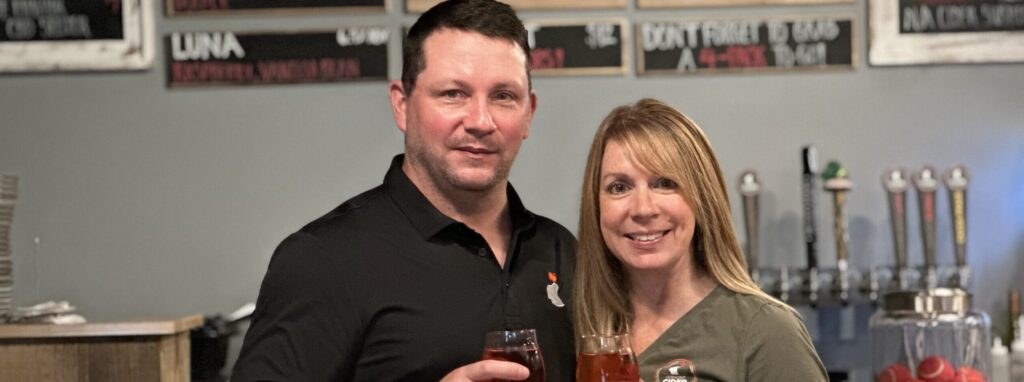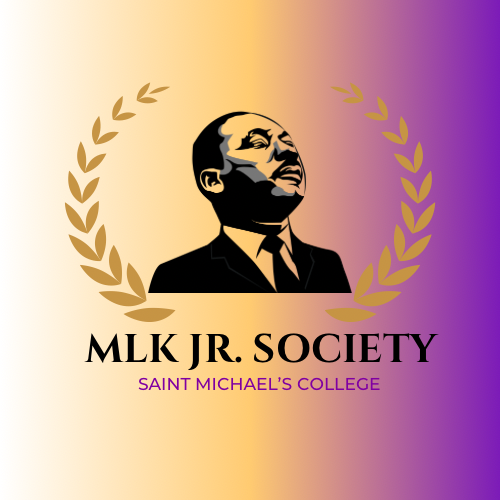Lakota perspective on racism
Speaker shares a Lakota perspective on dismantling racism

Scotti Clifford shares his perspectives and music during his recent talk in the St. Ed’s Farrell Room. (Photos by Matt Fournaris ’19)
Scotti Clifford, a member of the Lakota tribe, spoke recently at Saint Michael’s College about dismantling racism from a Lakota perspective.
Professor Jerald Swope of the Media Studies and Digital Arts Department, who is a close friend of Clifford and spent extended time living and working among the Lakota in his earlier career after graduate school, introduced his friend as a musician, a social justice activist and “cultural ambassador.” Clifford recently was involved in the Dakota Access Pipeline protest, and continues to be involved in the effort. He has also toured the country with his family playing music.
Clifford addressed many subjects in his discussion in the St. Ed’s Farrell Room on Monday, January 28, including the beliefs of the Lakota tribe and his own personal beliefs.
For example, the Lakota people believe that they are the land, and Clifford said, “We are all indigenous to this planet.” He told of his struggles growing up on the Pine Ridge reservation as part Native American and part Canadian French. Children at school gave him a hard time for not being “full blood,” while he also was shunned by white Americans in border towns because he was Native American.
Because he did not have anybody with whom to identify, he turned to music. Music took his family traveling around the country, and in his words, “exposed us to a lot of things that we weren’t accustomed to, and I think that’s the key: It’s like, ‘Welcome to the new world, you need to get over yourself and ask questions, learn about others.’”
On the subject of prejudice and judgement, Clifford said he believes that “We need to be sensitive but also address the issues, and being angry won’t solve it – we need to be creative about it, and we need to create the space that we need to be creative in.” He said it is time to start talking about religion and politics, and to talk about ethnicity in a respectful and attentive way.
Clifford said that creating relationships in order to hold each other accountable is important to address sensitive issues without anger. Furthermore, he said, we need to ask ourselves hard questions, such as how we are affecting the world, or if we’re not even affecting the world because we keep looking down. Eventually, Clifford said, we need to look up and pay attention to each other.
Of course, Clifford said, he recognizes, one cannot dismantle racism in an hour long discussion. However, each person like Scotti Clifford who takes action, traveling to spread wisdom and light, takes us another step closer.





